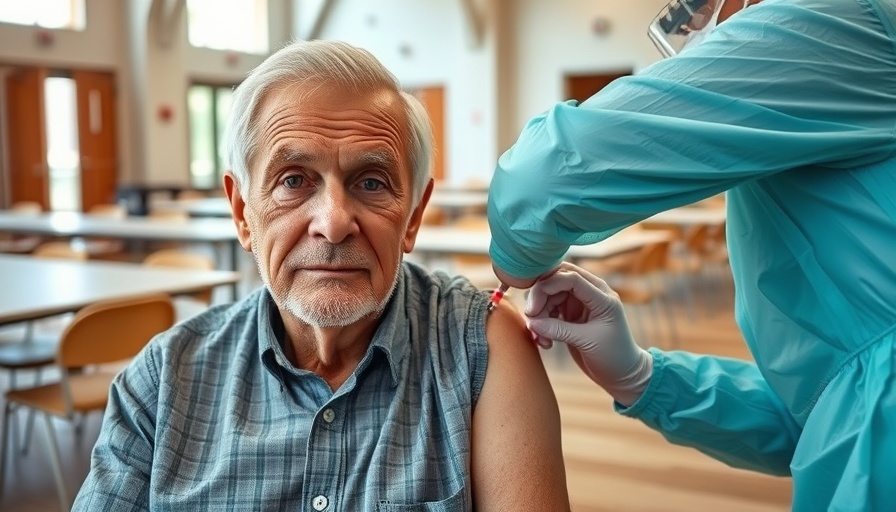
Understanding the Dismissal: What Happened?
Recently, all 17 members of the Advisory Committee on Immunization Practices (ACIP) were dismissed by U.S. Health Secretary Robert F. Kennedy Jr. The move was shocking, especially to those following public health closely. Kennedy not only dissolved the existing committee but also removed Dr. Melinda Wharton, a long-standing coordinator for meetings associated with this influential group. The new committee, populated with individuals who have been critical of vaccines, has raised concerns among health officials about their ability to effectively recommend vaccinations.
Expert Warnings: A Critical Take
The abrupt shift in membership has been described as ‘destabilizing’ by the former panelists in an essay published in the Journal of the American Medical Association (JAMA). They noted their apprehensions regarding the potential dismantling of trusted immunization policies that have cultivated safety and health for American families. “We are deeply concerned that these destabilizing decisions… may roll back the achievements of U.S. immunization policy,” they stated. The sentiment is clear: undermining this committee could risk the effectiveness of vaccination efforts meant to protect the populace from diseases like measles and flu.
The Role of the Advisory Committee on Immunization Practices
The ACIP has played a pivotal role in shaping vaccine recommendations since its inception in 1964. Affiliated with the CDC, this committee advises on how vaccines approved by the FDA should be utilized. Typically, these recommendations are endorsed by the CDC and guide healthcare providers nationwide. The committee comprises experts who must disclose any past collaborations with vaccine manufacturers to ensure transparency, a safeguard Kennedy has dismissed as ineffective.
The Implications of the New Committee
While Kennedy’s actions have sparked significant backlash, his rationale for creating a new panel was to address claims that the former committee was too closely allied with vaccine manufacturers. Critics, however, fear this new committee's foundation, built on skepticism toward vaccines, may compromise the integrity of immunization guidance. The recent additions include individuals known for their opposition to COVID-19 vaccines, which further complicates public perception and confidence in vaccination efforts.
Future Predictions: What Lies Ahead for U.S. Vaccination Policy?
As the new committee prepares for its first meeting, many anticipate the agenda will stress the importance of vaccines against common ailments, including flu and HPV. However, without the foundational support of previous members, there remains uncertainty regarding the new committee's decision-making processes. Critics highlight that the disengagement from seasoned professionals could lead to misinformed recommendations, ultimately affecting vaccination rates and public health.
Local Voices: Marin County’s Reaction to Vaccine Changes
Residents of Marin County, including health workers and parents, express concern over these developments in vaccination governance. With the region experiencing a unique blend of public health challenges, community sentiment leans towards safeguarding established protocols that prioritize the well-being of children and vulnerable populations. As vaccine discussions continue to be a central talking point in health circles, the voice of Marin County’s health advocates is crucial in navigating these changes.
Taking Action: Next Steps for Community Engagement
During challenging times like these, local communities can play a pivotal role by engaging in discussions about vaccine education and advocacy. Residents are encouraged to stay informed not just through traditional news sources, but also by participating in local health forums to voice their concerns and recommendations when it comes to public health policies. In an era of misinformation, ensuring that accurate information circulates can empower communities to make informed decisions about vaccines.
Conclusion: The Importance of Awareness and Engagement
Staying up-to-date with evolving vaccine policies is more important than ever. Governance over health measures can dramatically affect public safety and wellness. Now is the time for communities to unite in advocating for clarity, transparency, and science-based decision-making in public health.
 Add Row
Add Row  Add
Add 




 Add Row
Add Row  Add
Add 

Write A Comment